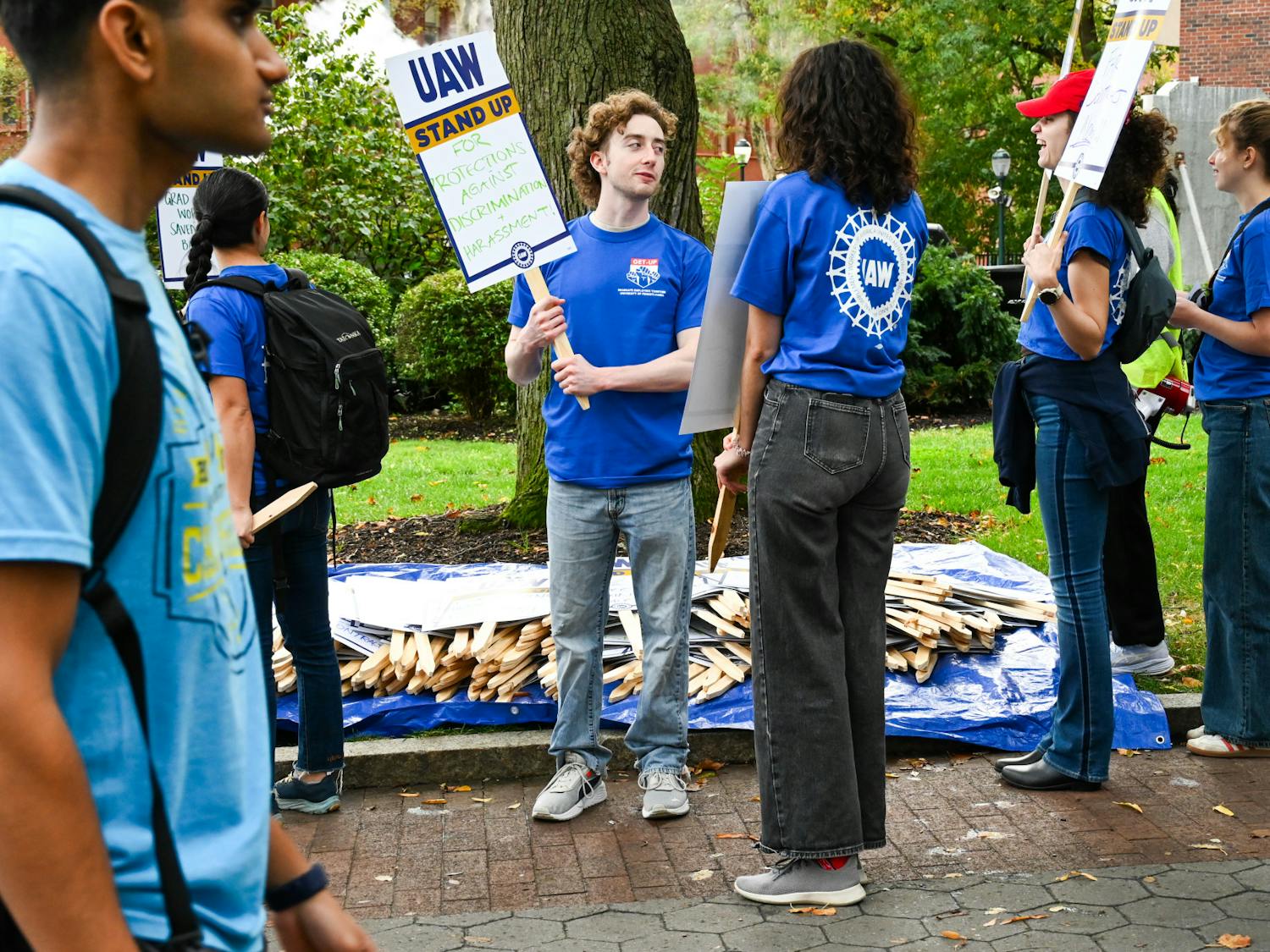In the wake of Penn's announcement that sophomores, beginning with the Class of 2024, will be required to purchase a dining plan, some first-generation, low-income students feel that the policy will be a financial burden and restrict flexibility with just three meal plan options.
The dining plan requirement is intended to round out Penn's Second-Year Experience program, which will also require sophomores to live in on-campus housing starting this fall. Both the campus housing and dining plan requirements came under fierce criticism from students, who noted that purchasing groceries and living in off-campus housing can be cheaper.
Some FGLI students criticized the lack of flexibility of meal plans because of their high costs and the large number of meal swipes and Dining Dollars they come with. Members of the Class of 2024 must choose between three plans, including the two first-year plans, which will cost $5,952 for the 2021-2022 academic year and allot 592 swipes and $250 Dining Dollars or 374 swipes and $800 Dining Dollars, respectively. A cheaper second-year plan costs $3,996 for next year and allots 312 swipes and $600 Dining Dollars.
College first year and FGLI student Jazmine Rud said she was frustrated by the University’s restriction of student choice and the monetary strain of the dining plans on some FGLI students.
“I’m lucky I currently have it covered under financial aid, but I know in the future that’s not going to be the case because of my parents' financial situation,” Rud said. “Not every student is going to receive financial aid to cover [the dining plan costs].”
Rud, who took a gap year before coming to Penn, said she spent that year deciding her own budget and cooking for herself. Being on the dining plan now, by comparison, has led to more waste because of unused swipes and Dining Dollars and difficulties getting food that aligns with dietary restrictions, she said.
College sophomore Eric Hoang, a Daily Pennsylvanian staffer and FGLI student, echoed Rud’s sentiments, adding that opting out of the dining plan in his second year saved him a lot of money, as his financial aid did not cover the cost of his dining plan.
“When I was on the dining plan last year, there were a lot of swipes and overall money that I didn’t use, so a lot of money was wasted,” Hoang said.
RELATED:
FGLI students hope spring campus reopening will help alleviate academic inequities
Online mentorship program connects hundreds of FGLI students to alumni for career advice
Hoang currently lives in Harrison College House in a suite that has a kitchen. He said that he primarily cooks using groceries he purchases and has spent a fraction of the total cost of the dining plan on food this year.
“I know that if I was forced to go on a dining plan, I’d be kind of mad because that’s a couple thousand dollars wasted,” Hoang said. “I feel like it would be a big detriment because it just adds more stress. That money could be going to textbooks. That money could be saved.”
College first year Jade Nguyen, who identifies as a FGLI student, said that, although her financial aid package covers most of her dining plan costs, she understands that the dining plan requirement may financially harm other FGLI students.
“It’s not a bad thing for me personally because I kind of just see it as Penn covering food for me,” Nguyen said. “I just feel bad for people who do have to pay for it or are required to when they could have other meal plans.”
When announcing the dining plan requirement to students, Provost Wendell Pritchett and Executive Vice President Craig Carnaroli cited addressing potential food insecurity as a primary goal — which some FGLI students questioned.
College first year Sarah Asfari said that using food insecurity as a reason for the new requirement felt disingenuous and misleading.
"To market it as addressing food insecurity feels a bit disrespectful to me because this dining plan costs so much," Asfari said. "As a FGLI student, I feel that I could probably eat on a much smaller budget."
Students felt that providing more dining plan options for sophomores, including cheaper plans that may have fewer Dining Dollars and swipes, could help alleviate concerns about wasting money.
College first year Tara Nguyen said she felt that the large number of swipes and Dining Dollars allotted restricted her options, adding that cheaper plans would allow for greater flexibility.
“Sometimes I also like to explore with my eating and maybe go to different restaurants around campus to pick up takeout,” Tara Nguyen said. She added that the requirement forces a mindset of "Oh, I can’t spend money here because then I still have to use my Dining Dollars," which she deemed a constraint.
Hoang said the dining plans are “inefficient” and “wasteful," calling on Penn to include more meal plan options and increase financial aid packages that cover costs of meal plans for FGLI students.
“We are all adults that can make our decisions about our finances, and we are all capable of handling that financial responsibility,” Rud said, agreeing with Hoang. “It’s not the best decision for the administration to restrict our decisions regarding our financial stability.”









